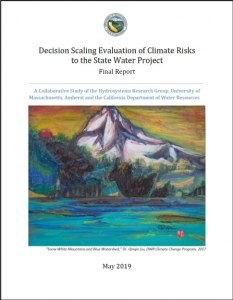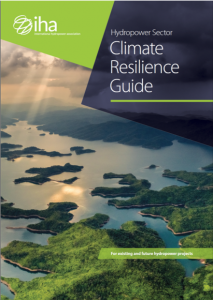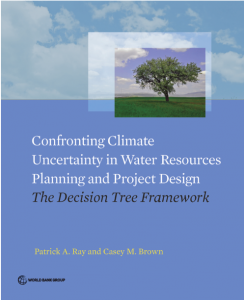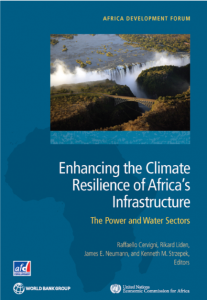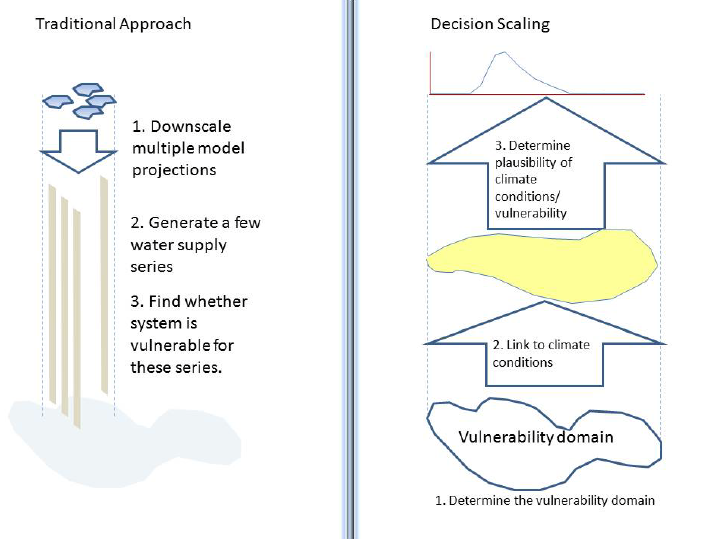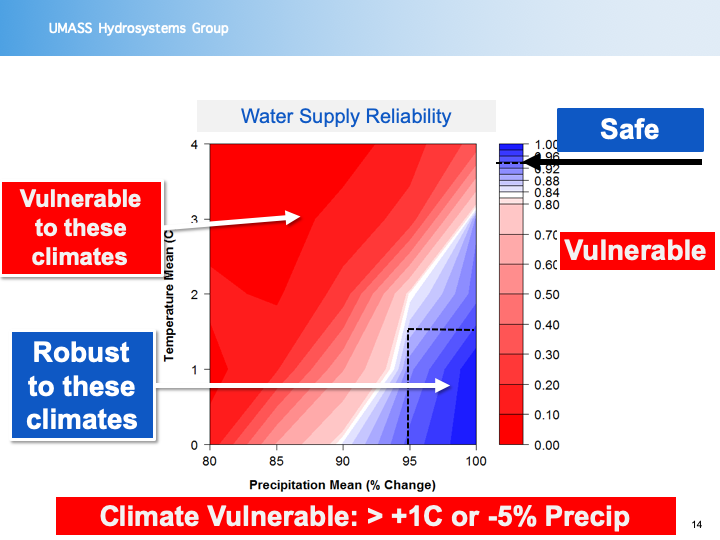Our research is inspired by the needs of user communities. The HydroSystems Group seeks to have impact in the real world by improving society’s readiness to face water and climate risk. We do so through close collaboration with operational partners who help us to tailor research to meet their needs, in doing so contributing to the “co-production” of applied science. This is our primary approach to research.
Some significant cases of societal impact through co-production are described below.
California Department of Water Resources Climate Risk Assessment
This report evaluated the vulnerability of the California State Water Project to climate variability and change. The report was created through close collaboration with the Cal DWR, with much of the analysis conducted by their scientists. It describes the specific climate scenarios that cause the vulnerability of the State Water Project, highlighting specific risks to the system for the first time. Funding was provided by Dept of Defense SERDP and Cal DWR.
IHA Climate Resilience Guide
This report was developed through collaboration with the International Hydropower Association, the European Investment Bank, the World Bank and engineering consultants. The report provides clear guidance for the hydropower industry for assessing the risks of climate variability and change to their investments.
Climate Risk Informed Decision Analysis
This report was a collaboration with the US Army Corps of Engineers, UNESCO, and Deltares. The report describes a process for assessing and managing climate-related risk to the water resources infrastructure.
The Decision Tree
This report was produced in collaboration with the World Bank. It was designed to provide investors with a systematic process for evaluating climate risk to water-related investments. The practice has been widely adopted by the World Bank and is the standard for assessing the risks of climate change for World Bank investments.
World Bank – Africa Practice
This report was led by Industrial Economics and the Stockholm Environmental Institute. It provided a series of examples of DMDU approaches applied to investment decisions in Africa.
Our initial innovation in the field of climate risk assessment is called decision scaling. The approaches uses a carefully designed climate-weather generator to stress test the system of interest and reveal climate vulnerabilities. These vulnerabilities are then used as an entry point to a climate science based assessment of their level of concern. It’s emerging as the preferred approach for assessing investments in adaptation. The original article is available here.
What is Decision Scaling?
While there is great investment in the pursuit of scientific insights, there is less focus on the process of ensuring those insights lead to better decisions. The goal of this research group is to improve water-related decisions through analysis. Decision Scaling is our approach to doing this. Decision Scaling uses stakeholder engagement, a decision analytic framework, and systems analysis to tailor the scientific investigation to the variables that are most influential for decisions.
The analytical heart of Decision Scaling is what we call the “stress test.” The stress test is an analytical process by which we perturb the external factors or uncertainties affecting a system to identify the factors or combinations of factors that cause that system to fail. In this way vulnerabilities are identified. The vulnerabilities can be defined in terms of those external factors and the thresholds at which they become problematic. This results in scenarios that are directly relevant to your decision and which serve as the basis for any necessary scientific investigation.
Decision Scaling saves time and money by ensuring that costly scientific investigations will be focused on the information that is actually critical to your decision. The process also reveals risks and robustness of a proposed plan and can be used for evaluating and deciding among alternative plans.
Decision Scaling formed the basis of the World Bank’s Decision Tree Framework and the US Army Corps of Engineers’ Climate Risk Informed Decision Analysis (CRIDA)
[vimeo]https://vimeo.com/15776471[/vimeo]

